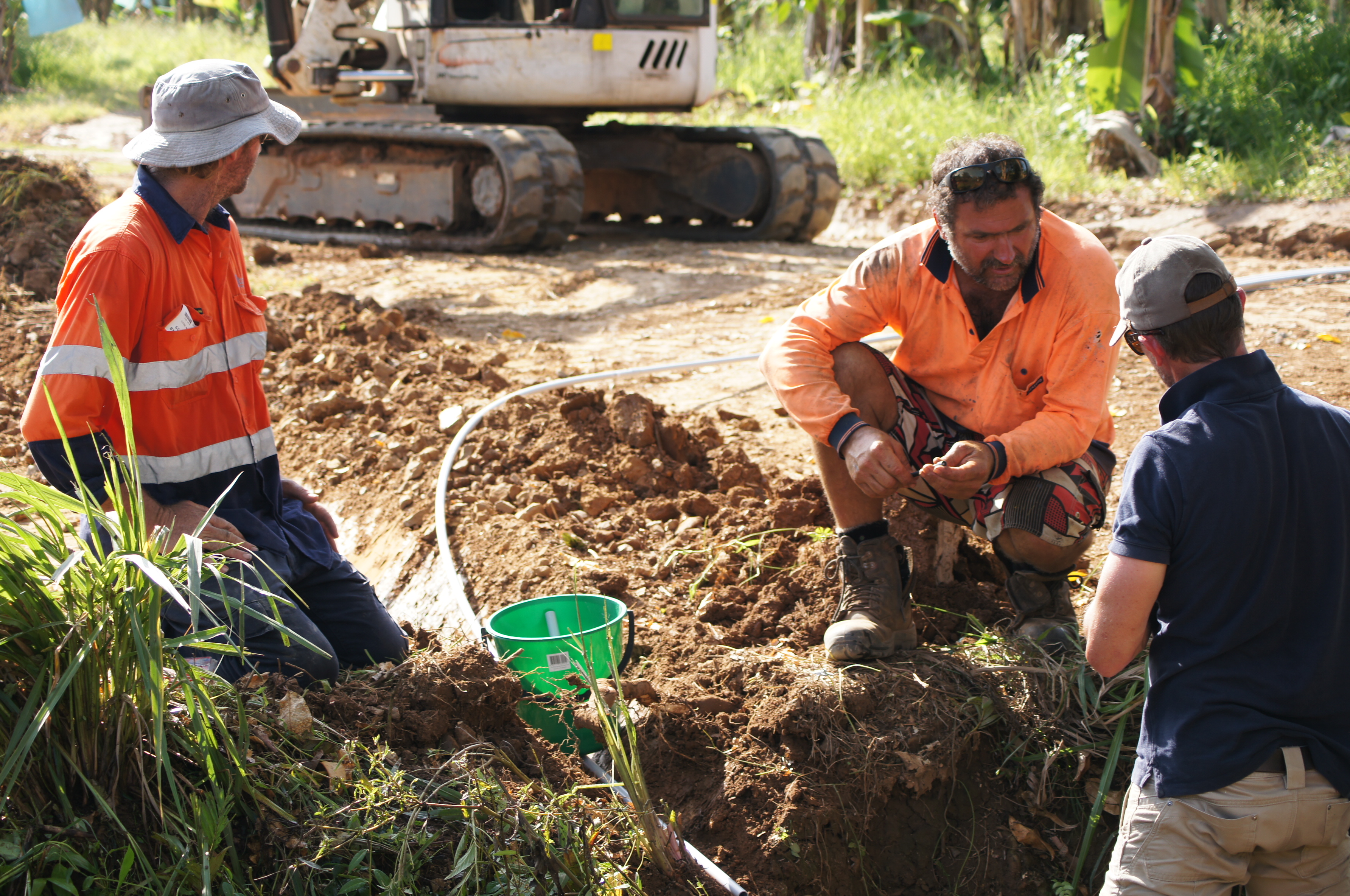
For the past year, the Wet Tropics Major Integrated Project (MIP) has worked with local organisations and landholders to identify ways to improve the quality of water entering the Great Barrier Reef lagoon.
Basin Coordinator Sandra Henrich said the project responds to demand for relevant, local information about water quality, and solutions that are informed by landscape conditions and local knowledge.
“This project has been designed for locals by locals. Growers want to make informed decisions that help reduce risk of nitrogen, sediment and pesticide run-off, without compromising productivity or profitability,” said Ms Henrich.
In a first for the Wet Tropics region, a High Efficiency Sediment (HES) basin was recently installed on a banana farm in the Innisfail area.
A HES basin is engineered to capture sediment, and associated nutrients and pesticides from agricultural water before it enters local waterways. Coagulant is added to the water to make fine sediment particles settle on the bottom.
“HES basins as a treatment option can be of particular interest to growers concerned with fine sediments erosion. HES basins are often used in the mining and building industries, but they are in the trial stage in agricultural environments in Queensland. In this instance the dosing system was retrofitted to an existing irrigation dam,” said Ms Henrich.
“HES basins are just one of a series of treatment initiatives being trialled by Wet Tropics farmers to reduce nutrient, sediment and pesticide loads flowing to the Reef. We know that even with the very best farming practices, there will still be an amount leaving the paddock. Soil types, rainfall, and farm practices all affect how much.”
“Monitoring data from the HES basin will help build a more comprehensive story about the effectiveness of different treatment systems in far North Queensland,” said Ms Henrich.
Rob Zahra said it will be interesting to see the results.
“All of my farm run-off goes into this irrigation dam which then gets recycled. If I can reduce the sediment in my water it’s definitely going to improve the efficiency of my irrigation system. If I’ve got better water quality in my dam I’ve also got better water to put on my bananas.
“I also think if this project delivers the results that we think it may, it could be quite a good exercise for other growers to adapt into their farming procedures to help improve the quality of water headed for the Great Barrier Reef.”
The Wet Tropics Major Integrated Project is funded by the Queensland Government through the Reef Water Quality Program.
